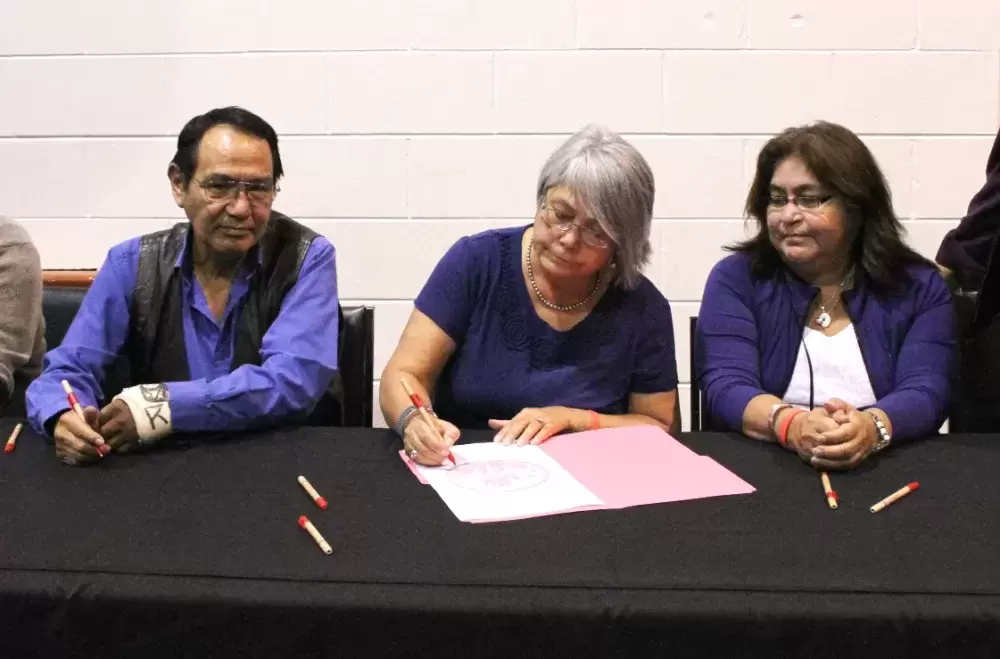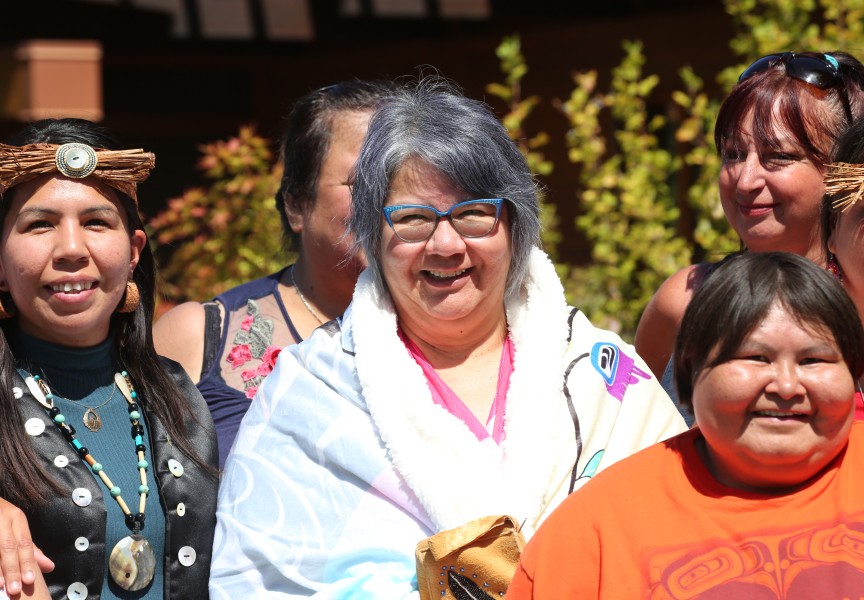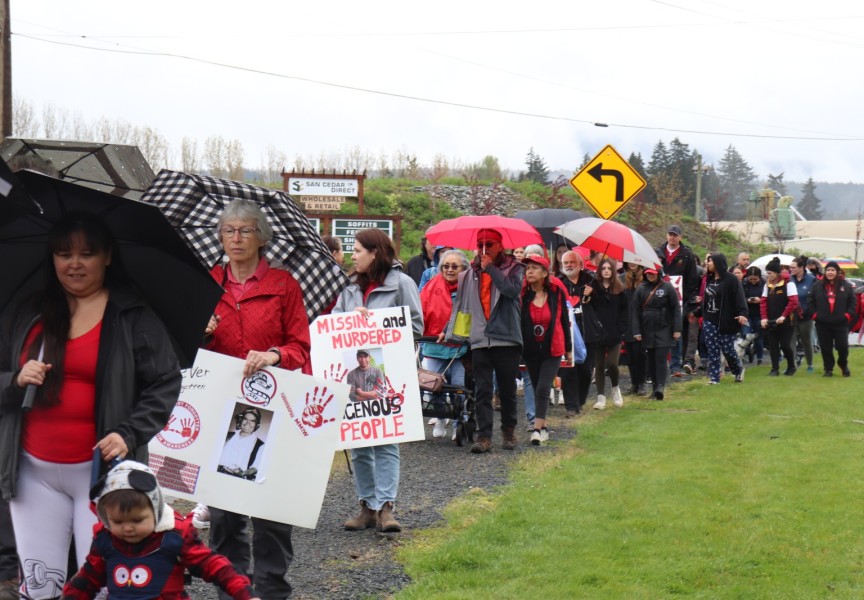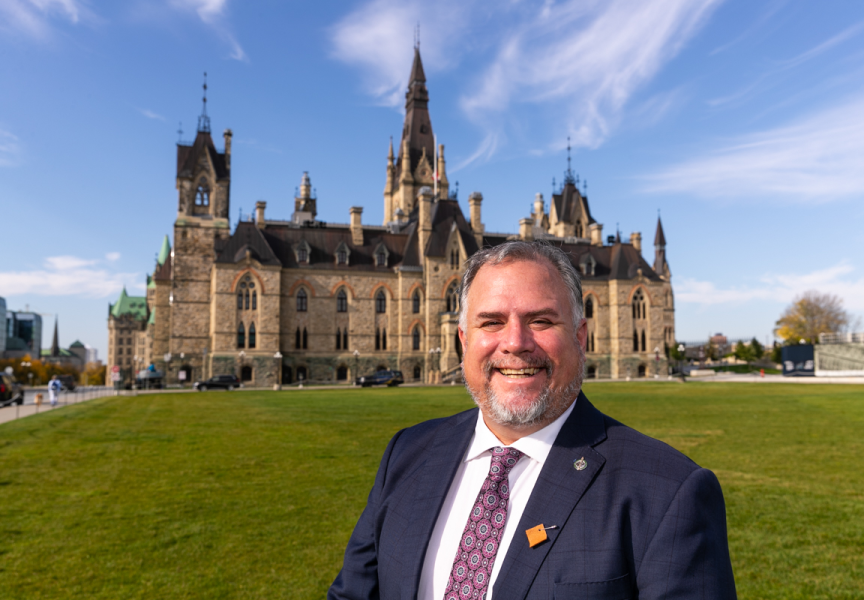A Nuu-chah-nulth Unity Declaration on Education was drafted and passed by motion on Day Two of the Nuu-chah-nulth Tribal Council Annual General Meeting Sept. 24.
It states, in part, ‘Whereas, our people have not entirely reconciled our past experiences of the residential school system imposed on us by the federal government…our children have the unfettered right to education and is protected under section 35 of the Constitution, the UN Declaration on the Rights of Indigenous Peoples, the UN Convention on the Rights of the Child and our Human Rights…we oppose any federally imposed legislation on First Nations that is not co-developed, co-authored or developed without proper consultation and consent of Nuu-chah-nulth Nations.’
The statement also demands equitable funding for resources and programs to meet the needs of children attending Nuu-chah-nulth schools regardless of where they’re located.
The declaration was signed by representatives of each of the Nuu-chah-nulth nations, who will go on to gather more signatures of support in their respective communities.
Leading up to signing the declaration, the table heard from Greg Louie of Ahousaht, who spoke about the federal government’s national First Nations education legislation that Louie said would be detrimental to aboriginal communities if imposed.
Louie said the federal government informed First Nations across Canada in December 2012 about plans for the legislation.
“We were shocked and disappointed,” he said. Concerned First Nation leaders immediately started gathering information in order to find out what the legislation could mean.
The federal government recently released its blueprint for the First Nations Education Act.
There was a gathering of First Nations leaders and educators in Vancouver in January about the legislation, followed by a meeting with Aboriginal Affairs Canada that included about 300 First Nations leaders last March, but Louie said it did not amount to consultation.
“The sessions we had with them, we did not consider consultation, we consider it engagement,” Louie said, adding that the Act is legislation that First Nations don’t agree with.
Louie said federal Aboriginal Affairs Minister Bernard Valcourt was disinterested and dismissive of First Nations concerns.
“We are doing very well here in B.C. and the minister is aware of that,” Louie said. In fact, many advances in First Nations education have been made in the province with agreements between the First Nations Education Steering Committee (FNESC), the provincial government and more.
Louie said Minister Valcourt said he didn’t see what First Nations found negative in the blue print.
Louie said he’s seen a draft of the bill, and if it passes, First Nations will not have control over education in their communities.
“Since last December we asked if we could co-develop the legislation and they keep saying no,” Louie said, adding that it is being developed without First Nations input.
“We’re going backward,” Louie said. “AANDC will send someone out to come and visit our schools, just like the Indian Agent days.”
To add insult to injury, the news of the draft legislation follows the Week of Reconciliation that just ended in Vancouver two days before.
“We don’t want anything like residential school, or day schools of the past,” Louie said. “We want our own accredited language and culture programs.”
“Tseshaht has been working with FNESC for at least 10 years, fighting for funding for language and cultural programs,” said Dennis Bill.
He said the ‘blue print’ for the legislation feels like it sets everyone two steps backwards.
“We have had to find grants to fund (language and cultural programs),” he said, adding there is no provision for those programs contained in the legislation.
Bill went on to talk about the government’s latest effort to offload its funding obligation for First Nations education. It’s called own source revenue.
“Ottawa is saying if we want it we will have to pay for it ourselves,” Bill said. He went on to explain that if bureaucrats determine that First Nations are affluent enough to pay for education from their own funds, they will claw back a portion of funding the following fiscal year. Bill said this could mean a First Nation could lose more than 30 per cent on average of their education funding.
The delegates around the table agreed to fight the legislation; and their first step was to show a united front and the declaration was formulated, as suggested by Ken Watts during his election campaign.
“We’ve been down this road before,” said Larry Baird of Yuu-thluth-aht First Nation. “When they wrote the White Paper, trying to change the Indian Act. When the government starts uttering the words that they’re going to change things, we should be ready to answer the call to arms. They are not our friends. What is the national strategy? We should not be reacting; we should have a strategy that pushes us forward.
“We have the youngest demographic of young people wanting to be educated. They don’t want us to be smart because we just might take away some of their jobs.”







